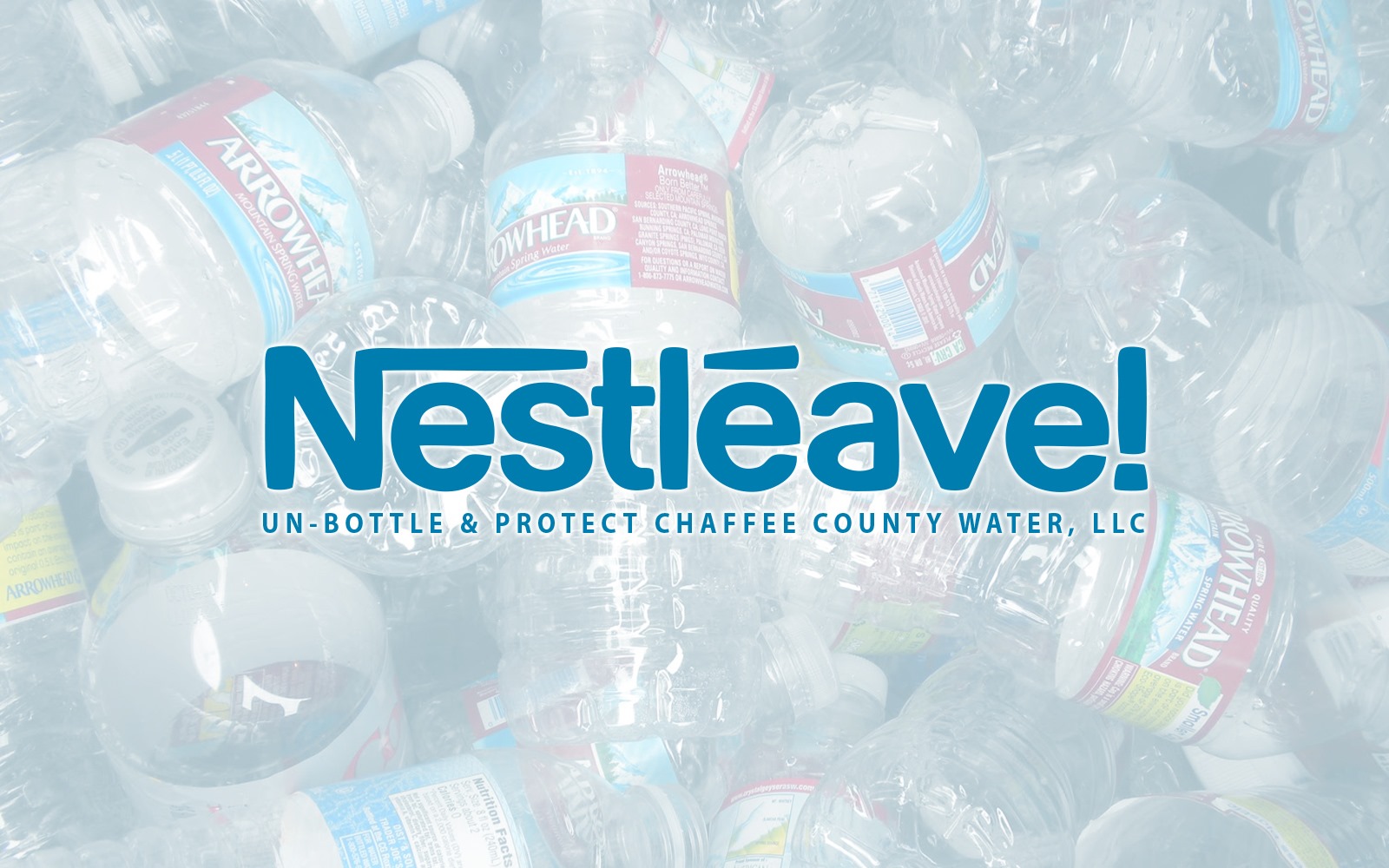Thursday’s “Digital Rally to Reclaim Nestlé’s Troubled Water” featured U.S. Rep. Rashida Tlaib of Michigan’s 13th District and benefited six grassroots organizations, including Unbottle and Protect Chaffee County Water, which is opposing the extension of Nestlé’s permit to pump Chaffee County groundwater.
The Story of Stuff Project organized the online event, and Unbottle cofounder Jennifer Swacina joined Tlaib and the other community organizers in speaking out against Nestlé Waters North America.
“We are yet at another crossroad in our fight for Michigan water against Nestlé,” Tlaib said. “The $4 billion sale of Nestlé’s bottled water operations to private equity firms is deeply disturbing. The game plan for private equity firms is always the same – strip operations to the bare minimum while maximizing profits and disregarding any long-term effects on our communities.”
Tlaib said Nestlé Waters North America is damaging the lakes and streams near Evart, Mich., by pumping 400 gallons a minute from the aquifer to bottle as Ice Mountain spring water “for, basically, free.”
Tlaib said she would use her position as vice chair of the House Oversight Committee’s Subcommittee on Environment “to directly investigate water-bottling operations, including those done by Nestlé. … Now is the time to get loud.”
In describing the situation in Chaffee County, Swacina said residents “came out in force” in 2009 to oppose the permit, but “one of the deciding county commissioners at the time said they feared our small county with limited resources would’ve been sued by this billion-dollar corporation. So essentially, Nestle bullied and bribed their way in.”
In describing the context of Nestlé’s pending application for an extension of the permit that allows the company to extract Chaffee County groundwater, Swacina highlighted “severe drought” and the 2020 wildfires, “the largest wildfires in Colorado’s recorded history.”
“The effects of climate change and plastic pollution are no longer debatable,” she said, “and Nestlé didn’t even meet their contractual commitments,” including hiring 50 percent local truck drivers and putting the land into a conservation easement.
Swacina also mentioned the subdivision that was created, in part, through a land swap between Nestlé and Steve and Laurie Jacobson.
Nestlé, she said, “traded away that prime river frontage land for development of a small subdivision to a family with political influence. They managed to get their own consultants on the Planning Commission, and one of them even had a vote in favor of the subdivision.”
Swacina also mentioned the scarcity of water in Colorado’s arid climate. “Now there are essentially water police flying drones … locating houses with illegal backyard ponds because of the loss of water from evaporation.”
She also criticized Colorado’s Prior Appropriation System, which allows Nestlé to replace the water it uses with water from the headwaters of the Colorado River. She concluded, “Any other use of this water would be more beneficial than what Nestlé is doing.”
The rally also included speakers from grassroots groups opposing Nestlé in other communities – Community Water Justice in Maine; Michigan Citizens for Water Conservation; Our Santa Fe River in Florida; and The Water Watchers in Ontario, Canada – as well as a video about opposition to Nestlé’s water extraction in California and a performance by California band Tune-Yards.
The Story of Stuff Project Executive Director Michael O’Heany said, “Nestlé chooses small, economically depressed communities and lures them in with promises of jobs, community benefits and, this is a joke, environmental stewardship. … The company then builds a cozy relationship with elected officials and the regulators meant to oversee their operations.”
The rally generated more than $7,000 in pledges, and The Story of Stuff Project officials promised to match donations and split the proceeds equally among six grassroots organizations.
The digital rally can be viewed on YouTube.





